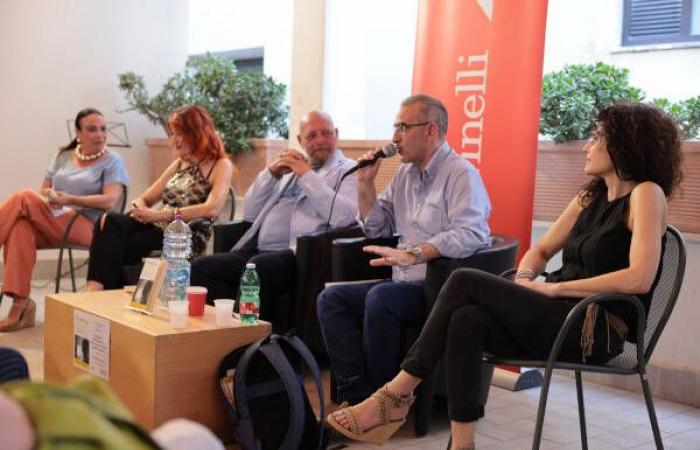Caserta. Presented as a preview at the Turin International Book Fair, “Deceptions and power” is already available in bookshops and online bookshops. Il gaslighting”, anthological essay edited by Claudio Lombardi and Rita Raucci and written with Maria Giovanna Petrillo and Stefania Sparaco; editorial consultancy is by Paolo Mazzarella. Published by Edizioni Spartaco (pages 252, 18 euros), the work condenses years of research on gaslighting, a “refined” form of psychological violence, into interpersonal relationships, cinema, literature and politics in a popular text. .
“Overcoming the discursive dimension of gaslighting for […] recognizing its dynamics, understanding its consequences and adopting measures to counter it appears to be a priority collective task”, writes, in the preface, Professor Francesco Eriberto d’Ippolito, director of the Department of Political Sciences of the University of Campania “Luigi Vanvitelli”. The aim of the authors, members of the Paula Collective, is to provide readers with an overview of a complex and multifaceted topic, presenting it from various perspectives and with different points of view. The essay offers an interpretative key that incorporates patriarchal culture and stereotypes, cognitive biases and the dictatorship of algorithms, fake news and artificial intelligence; proposes original analyzes and reflections; encourages us to ask ourselves questions about a phenomenon not based on a rigid and shared definition.
“Although we still tend to reduce it to a “couple problem” – say Lombardi and Raucci –, gaslighting can manifest itself in any situation in which asymmetries of power or status are recognisable, such as in politics and the economy, and in any form of social dominance that produces negative repercussions on self-esteem, such as to undermine the judgment and mental health of the victims. By investigating gaslighting in depth, perhaps, we will be able to better understand the connection between macro and micro abuses, inside and outside the home, and we will be able to develop new prevention strategies. However – the curators point out – a lie is not enough to scream about psychological violence, nor does every attempt at persuasion lead to manipulation and control; the excessive extension of a term with such a negative connotation hides the danger of including and considering intolerable dynamics which, instead, are rather normal. In short, we need to be careful.”
Eighty years after the release of “Anguish” by George Cukor, a film often cited when talking about gaslighting, the essay was inspired by the preparatory works of the short film “Io vivo per te”, of which Rita Raucci is the creator, interpreter and , with Claudio Lombardi and Paolo Mazzarella, screenwriter. The short film, directed by Gaetano Ippolito, has won awards and appreciation in Italy and abroad and can be viewed using the QR Code inside the book.
© All rights reserved
CLICK AND SUBSCRIBE TO OUR NEWSLETTER




